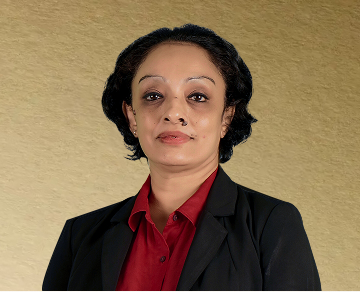
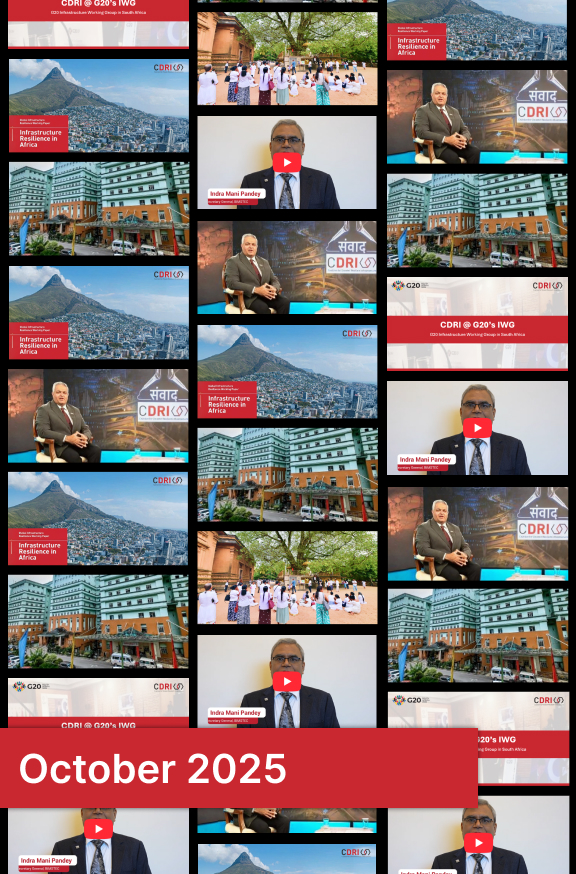
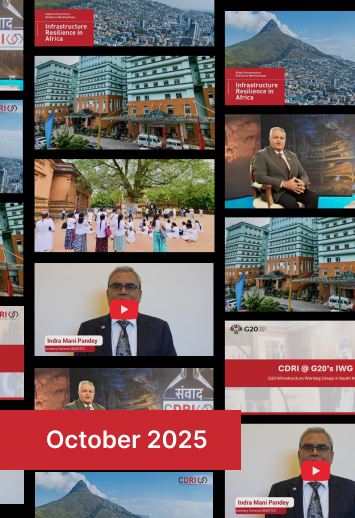
Home 
Newsletter October 2025
Making the case for DRI
On India’s Parliament TV, DG Amit Prothi spoke with Teena Jha about CDRI’s rapid growth over the past six years, and increasing support for member countries. He emphasized the resilience dividend to be gained by investing in DRI.
Building the Coalition
Building the Coalition
Jason Keats Hall, Jamaican High Commissioner to India, reflects on the benefits of Coalition membership. This quarter, four countries and two institutions joined the Coalition, expanding membership to 60. This growth reflects a growing international commitment to resilient infrastructure.
Leading global conversations on DRI
CDRI convenes Coalition members and global experts to advance DRI agenda ahead of COP 30
A new Community of Practice has been convened to underscore infrastructure resilience as key to climate adaptation, advancing national efforts to achieve the Global Goal on Adaptation. It unites governments, experts, and communities to shape recommendations for integrating DRI into national adaptation strategies and planning.
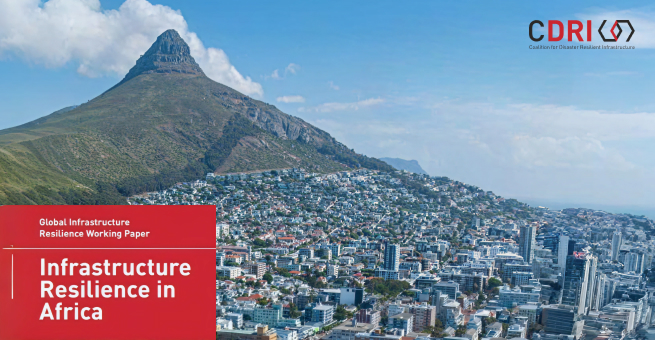
CDRI highlights need for DRI in Africa
The African continent is at risk of $12.7 billion annual losses caused by disasters, emphasizing urgent need for resilience. Launched during Africa Climate Week, CDRI’s GIR Working Paper calls for increased funding, effective early warning systems, and stronger institutions to enhance infrastructure resilience across the continent.
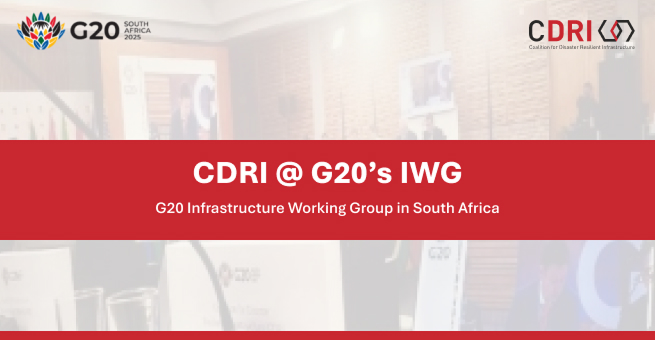
The resilience dividend: CDRI at the G20 infrastructure working group
At the G20 IWG in South Africa, CDRI showcased tools like the Global Infrastructure Risk & Resilience Model, GIRI, to promote resilient, risk-informed planning, while advocating inclusive development through investible pipelines, blended finance, and cross-border governance for vulnerable regions.
Champions of DRI
Champions of DRI
Ede Ijjasz, Lead Coordinating Author of CDRI’s 2025 Global Infrastructure Resilience Report, highlights the progress from risk identification to actionable solutions, broadening hazard coverage, quantifying economic impacts, and integrating finance, technology, and nature to unlock infrastructure’s resilience dividend.
Promoting risk-informed policy and practice
Strengthening DRI in the Bay of Bengal
The Bay of Bengal region faces annual disaster losses of over USD 52 billion. A CDRI–Bay of Bengal Initiative for Multi-Sectoral Technical and Economic Cooperation (BIMSTEC) workshop in New Delhi convened 25 experts to advance resilience priorities. BIMSTEC Secretary-General highlights how cooperation can strengthen national systems in the region.
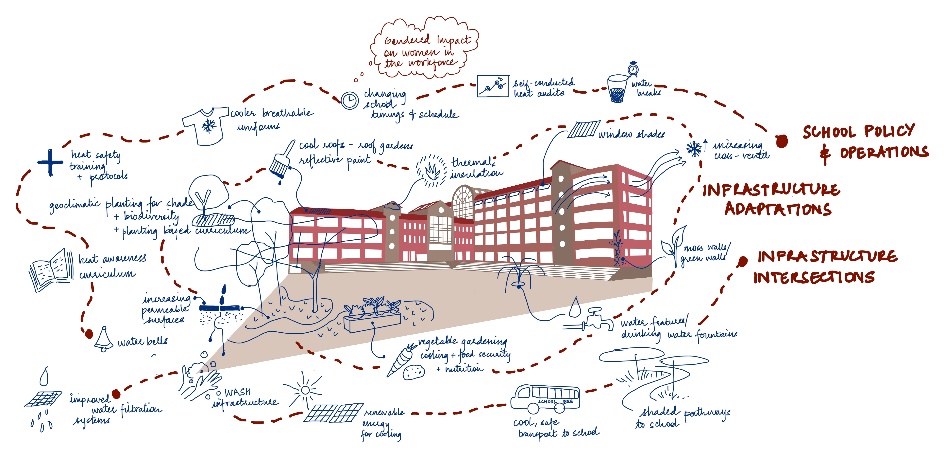
Supporting schools to manage extreme heat
CDRI has convened a Community of Practice on ‘Heat-Smart Schools’ to address the impact of extreme heat on education, emphasize knowledge exchange, policy innovation, and practical solutions to create heat-resilient school infrastructure. This can protect student health, ensure learning continuity, and promote equity in climate adaptation.
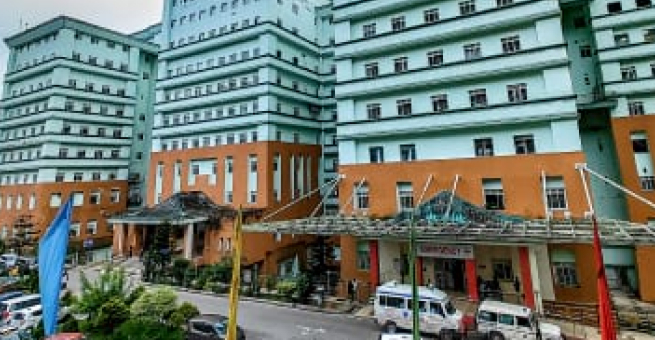
Health infrastructure resilience
In the Northeastern Indian state of Sikkim, CDRI and WHO India are enhancing health infrastructure resilience through training, audits, and planning. This project strengthens emergency preparedness post-2023 floods and develops scalable models for safer healthcare in mountainous regions facing climate and disaster risks.
Enhancing capacities to impact DRI & post-disaster recovery

Building fiscal resilience in Fiji
Recurring natural hazards pose major fiscal risks to Fiji, impacting infrastructure and debt sustainability. CDRI’s national assessment recommends risk-layered financing, robust safeguards, and data-driven planning to enhance disaster preparedness and support sustainable recovery across critical infrastructure sectors.
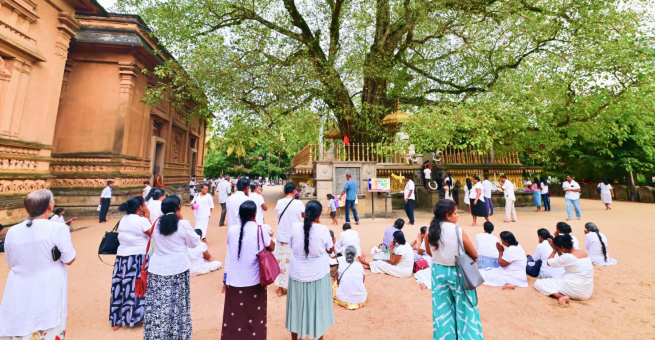
Building resilient urban water systems in Sri Lanka
The CDRI project in Sri Lanka’s Colombo, Kotte, and Kelaniya aims to boost urban resilience by enhancing climate-resilient water safety plans. It will benefit 2.2 million residents with safer water, empower local officials with data-driven skills, and secure $3.56 million for resilient infrastructure.
Early warning systems boost preparedness in SIDS
Carlos Paulino, Deputy Director of Planning, Emergency Operations Center, Dominican Republic, highlights how the IRIS project is enhancing disaster preparedness by funding multi-hazard early warning systems and a national emergency atlas, boosting infrastructure resilience and reducing vulnerability through data-driven planning and coordination.
Viewpoint
Staff testimonial
Shriya Rai, a Specialist in the Partnerships team, reflects on her journey at CDRI, noting how her work is both timely and transformational. She highlights the power of collaboration among diverse organizations to drive sustainable development and advance global resilience and infrastructure mandates.

